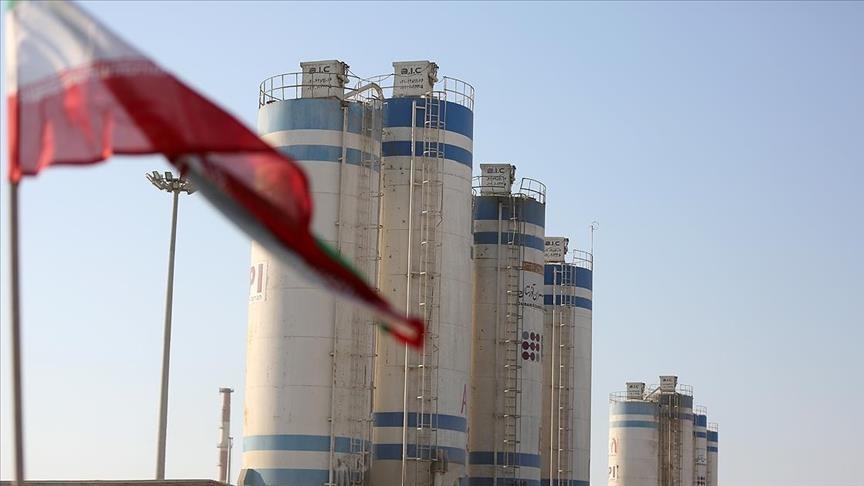Iran has submitted its response to the European Union’s text aimed at salvaging the 2015 nuclear deal, with the EU expected to offer its response in the coming days.
While details on Iran’s response are still unclear, reports suggest that it primarily focuses on the removal of sanctions and economic guarantees.
Iran’s state media confirmed that the response was submitted at midnight on Tuesday, saying it was the US turn to ‘show realism and flexibility’ to revive the accord.
Nabila Massrali, the spokesperson for EU’s foreign affairs wing, also confirmed that they had received the Iranian response last evening and were “studying” it.
Seyed Mohammad Marandi, a senior adviser to Iran’s negotiating team, in a Twitter post on Tuesday said Iran has ‘expressed its concerns’ in its response, adding that the remaining issues ‘are not very much difficult to resolve.’
He said the concerns are linked to ‘past US/EU violations,’ insisting that the parties are closer to reaching an agreement than ever before, in an indication that the deal is imminent.
Indirect talks between Iran and the US, mediated by the EU, concluded in the Austrian capital earlier this month with a final draft of the agreement on the table.
Iran confirmed that relative progress was made on the remaining issues in the latest round of talks that came after a five-month hiatus.
On Monday, Iran’s Foreign Minister Hossein Amir-Abdollahian said some Iranian lawmakers had objected to the draft, admitting that the final text ‘will have flaws,’ calling it the ‘nature of the negotiations.’
The top Iranian diplomat said Tehran and Washington have been exchanging messages on three key issues, adding that the opposite party had ‘verbally’ shown ‘relative flexibility’ on two issues, but not on the third that is related to guarantees.
Nour News, which is affiliated with Iran’s top security body, reported on Monday that President Ebrahim Raisi chaired a high-level meeting to discuss the EU text and Iran’s response to it.
The latest EU draft, proposed by the bloc’s foreign policy chief, Josep Borrell, has rekindled hopes that the marathon talks in Vienna, underway since April last year, could finally result in a breakthrough.
Interestingly, the visit of Qatar’s Deputy Foreign Minister Abdulaziz Al-Khulaifi to Tehran last week was seen by many political experts as part of efforts by Doha to help towards reviving the deal and resolving outstanding issues, including UN nuclear watchdog’s probe of Iran’s undeclared nuclear sites.
Iranian Foreign Ministry spokesman Nasser Kanaani in his Monday presser noted relative progress in Vienna talks, but said the outcome will depend on Iran’s national interests being guaranteed.
Last week, after the Vienna talks closed, the EU foreign policy chief said the final text has been reached, calling on the two main parties to take their final decisions.
“What can be negotiated has been negotiated, and it’s now in a final text. However, behind every technical issue and every paragraph lies a political decision that needs to be taken in the capitals,” Borrell wrote on Twitter.
He said if the response from both sides is ‘positive,’ the deal can be closed.
The ongoing efforts to salvage the deal come amid heightened tensions between Tehran and Washington, with officials on both sides engaging in verbal duels.
Last week, the US Justice Department announced that a member of Iran’s Islamic Revolutionary Guard Corps faces criminal charges for allegedly trying to assassinate former US national security advisor John Bolton, ‘likely in retaliation’ for the killing of Iranian military commander Qasem Soleimani.
Iran dismissed the charges as ‘baseless’ and ‘politically motivated.’
In a tweet on Saturday, Amir-Abdollahian wrote that ‘history ought to have taught the US that language of threat against Iran and Iranians achieves nothing.’
‘Futile attempts at deflection won’t allow the US to evade responsibility for the thousands of Iranian and other victims of its involvement in terrorist crimes in our region,’ he wrote.
It came two days after US Secretary of State Antony Blinken said they will ‘not tolerate threats of violence against Americans — and that certainly includes former government officials’.
‘Any attack would be met with severe consequences,’ he wrote on Twitter.

